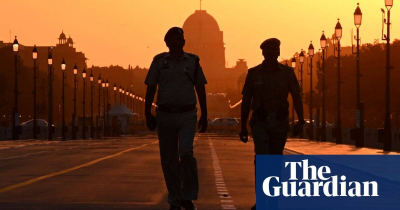The Guardian - China-G20 battle for influence as US seeks to rival China in the global south
September 7, 2023 5 min 920 words
这篇报道突显了2023年G20峰会的重要性,尤其是在中国与美国在全球南方争夺影响力的背景下。文章提到印度作为主办国努力将自己定位为超级大国,但与此同时,中国国家主席习近平决定不出席,引发了人们的关注。报道指出,G20作为一个包括19个最富裕国家和欧盟的国际组织,现在面临着保持多边主义原则活跃的最后希望。联合国秘书长安东尼奥·古特雷斯警告称,世界秩序分裂的风险加大,而联合国自身也受到乌克兰战争的阻碍。 最引人关注的是关于乌克兰冲突的争议,中国和俄罗斯拒绝讨论该问题,可能导致G20峰会无法发布联合公报。印度曾寄望成为全球南方国家的调解者,但这一愿望可能难以实现。美国则试图在与中国的全球南方地缘政治竞争中寻找优势,提出了一系列债务减免、技术合作、银行改革和应对气候危机的计划,以吸引发展中国家。此外,美国还推崇印度委托哈佛教授拉里·萨默斯和印度增长研究所主席NK辛格准备的庞大报告中的多边银行改革建议。 然而,气候危机问题仍然是争议的焦点,特别是关于淘汰化石燃料和在2030年之前将可再生能源容量增加三倍的日期。美国和印度支持这一提议,而中国领导的一组国家,包括俄罗斯和沙特阿拉伯,反对这一提议。此外,富裕国家承诺每年向低收入和中等收入国家提供1000亿美元的气候融资,也将面临压力。 总之,这篇报道描绘了一个充满紧张和争议的G20峰会,涉及到全球南方的地缘政治角力,气候危机和多边主义的未来。这次峰会将成为衡量国际合作和全球治理能力的关键时刻,各国领导人需要在此之前就关键问题展开建设性的对话和合作。
The run-up to this weekend’s G20 summit in Delhi has largely been dominated by two issues: the host’s efforts to project India as a superpower; and the intriguing decision of Xi Jinping not to attend. The substance of what world leaders will discuss during their two days together has struggled to surface.
Yet this year’s G20 – the 24th since the format was inaugurated in 1999 – is potentially a make or break moment for the organisation that includes the world’s 19 wealthiest nations plus the European Union as a bloc. With one part of the world increasingly gathering in the now expanded Brics format where China has a leading role, and the west comfortable with its annual G7 summitry, the G20 is the best remaining hope of keeping the principle of multilateralism alive. The United Nations secretary general, António Guterres, spoke on Thursday of a real risk of fragmentation of the world order, while his own organisation is paralysed by the war in Ukraine.
Such are the divisions about that conflict there is “a strong risk” that there will be no G20 joint communique, according to Tristen Naylor, assistant professor of international relations at the University of Cambridge. “It is more possible than ever before there will be no joint communique,” he said. Both China and Russia have refused to allow Ukraine to be discussed. One suggested idea is that the G20 just repeat what was agreed at the last G20 in Bali, but Russia says western intervention has been so intense since then that the Bali baseline cannot hold.
The absence of a joint statement would be a huge disappointment to India, Naylor says, since it has set such store by being the country that is able to act as the broker on behalf the global south. Dr Subrahmanyam Jaishankar, India’s external affairs minister, said the G20 should never be seen as an “arena for power politics, but instead of collaboration” and claims that no previous G20 host has consulted as widely with the developing world as India on what it wants discussed. He said the views of 125 countries had been sought. As a symbol of this inclusiveness, India will be able to announce the African Union has given a permanent seat at the G20 top table.
The US, looking for any advantage in the ceaseless geopolitical competition with China for influence in the global south, is determined to exploit Xi’s late withdrawal.
Jake Sullivan, the US national security adviser, has said that if Xi wanted tospoil Narendra Modi’s big moment that was up to him, adding China appeared to be spurning a chance to engage constructively and solve the multilateral problems facing developing countries.
The US is also contrasting China’s ecomomic slowdown with the relative turnaround in the American economy. Sullivan has promised the US will come to the summit with a “value proposition” on debt relief, technology, bank reform and action on the climate crisis.
The package includes a sovereign debt restructuring for low- and middle-income countries that Sullivan says could ultimately leverage more than $200bn (£160bn), starting with an initial Congress-endorsed $25bn.
Sullivan has also embraced a better funded World Bank under the new leadership of Ajay Banga as “a positive, affirmative alternative lending method to what is a much more opaque, more coercive method, which is the Chinese Belt and Road initiative method”.
In practice many of the ideas on multilateral bank reform stem from a mammoth Indian-commissioned report prepared by Harvard professor Larry Summers and NK Singh, the president of the Indian Institute for Growth. Unlike the US, China has been cautious about the report’s recommendation that the international development finance system could provide $500bn in additional external financing by 2030.
The dispute on the climate crisis, according to India, focuses on phasing out fossil fuels and the date by which renewable energy capacity could be tripled. China is leading a group including Russia and Saudi Arabia opposing the tripling of renewable capacity by 2030 and a cut in greenhouse gas emissions of 60% by 2035. It is likely the G20 will also expand the use of climate transition finance to cover the adaptation of the production of materials like cement and steel.
There will also be pressure on the rich countries to fulfil a commitment made three years ago to provide $100bn in climate finance annually to low- and middle-income countries.
India’s negotiating hand at the G20 is, however, limited in two respects. First, its energy minister, RK Singh, has often said Indian emissions per head are some of the lowest in the world and he has no plans to phase out coal use. Secondly, the UN’s Cop28 climate conference, starting at the end of November in Dubai, provides a ready reason for all sides to agree to defer difficult issues.
Joe Biden will, meanwhile, do all he can to praise Modi on his chosen themes such as digital transformation, since India is regarded as the critical ally in Washington’s conflict with the absent Xi.
No one can be sure why the Chinese president will not be there. Evan Feigenbaum at the Carnegie Endowment for International Peace said his absence was odd given countries favourable to China such as Saudi Arabia would have been present. He said: “Either he is preoccupied domestically about changing China’s economic model or trying to signal that he can opt in and out of these groups.”
If it is the latter, India’s chosen summit slogan – “one Earth, one family, one future” – looks somewhat threadbare.

